Best Metal Detectors For Gold UK (2025): An Expert's Guide

Written by Piotr Lesniewski
Detectorist • Scotland
As an Amazon Associate we earn commission from qualifying purchases. Read our full Affiliate Disclosure.
I've spent countless hours sweeping across fields, metal detecting for gold. Combing through riverbeds, and exploring old mine tailings, all in the pursuit of that unmistakable glint of gold. It's a thrill that never gets old.
But I've also seen many newcomers to the hobby become disheartened, not by a lack of treasure, but by the overwhelming choice of equipment.
Understanding the specs – frequency, ground balance, discrimination – can feel like learning a new language. That's why I've decided to put together this guide, based on my years of experience, to help you navigate the world of gold-specific metal detectors and find the perfect Best Metal Detector For Gold for your needs and budget.

My Pick For The 4 Best Metal Detectors for Gold in 2025
After extensive testing and countless hours in the field, I've narrowed down my top picks for the best gold metal detectors available in the UK this year. These are the metal detectors that have consistently delivered for me, and I'm confident they'll do the same for you.
Minelab Equinox 800
Best Overall Metal Detector for Gold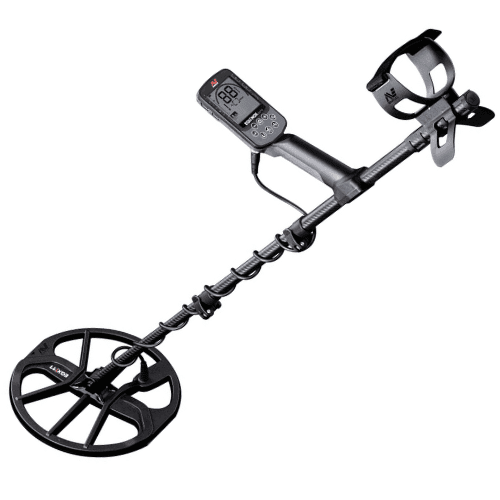
As an Amazon Associate we earn from qualifying purchases.
I Recommend This If...
- You are an enthusiast who wants a top-performing, versatile metal detector that excels at finding gold but is also brilliant for hunting coins, relics, and treasures on the beach.
- You need a reliable, all-terrain metal detector that can handle highly mineralised ground and even be submerged in water.
- You are a detectorist who values having advanced, customisable settings that allow the metal detector to grow with your skills.
- You want a metal detector with a solid, all-day battery life that won't let you down when you're far from a power source.
Best Overall Metal Detector for Gold: Minelab Equinox 800
For me, the Minelab Equinox 800 is the undisputed champion when it comes to all-around gold detecting. Its Multi-IQ technology isn't just a fancy feature on a box; it gives me a tangible sense of confidence in the field.

I remember hunting a patch of ground I thought was hunted out, and the Equinox 800 pulled out a tiny hammered coin right next to a piece of iron that other metal detectors had clearly ignored. That's the Multi-IQ at work. It processes multiple frequencies at once, giving you a much clearer picture of what's under the coil.

The pre-programmed gold mode is fantastic, but I've found that by tweaking the Iron Bias setting, I can really quieten it down on mineralised ground, letting those faint gold signals pop.
What I truly love most about the Equinox 800 is that it feels like a true partner. It’s not just a gold metal detector.
I can be carefully working a stream bed for flakes in the morning, feeling the subtle shifts in the threshold tone, and then in the afternoon, I can switch to Field 2, up the recovery speed, and pull Roman coins from iron-infested pasture. It’s this adaptability that makes it my go-to.

It’s light enough to swing all day without my arm complaining, and I’ve had it submerged in streams and out in pouring rain without a single issue. The battery life is solid; I can easily get a full day's hunting in on a single charge, which is crucial when you're miles from anywhere. It’s a reliable workhorse that has paid for itself many times over.
Nokta Makro Simplex Lite
Best Budget Metal Detector for Gold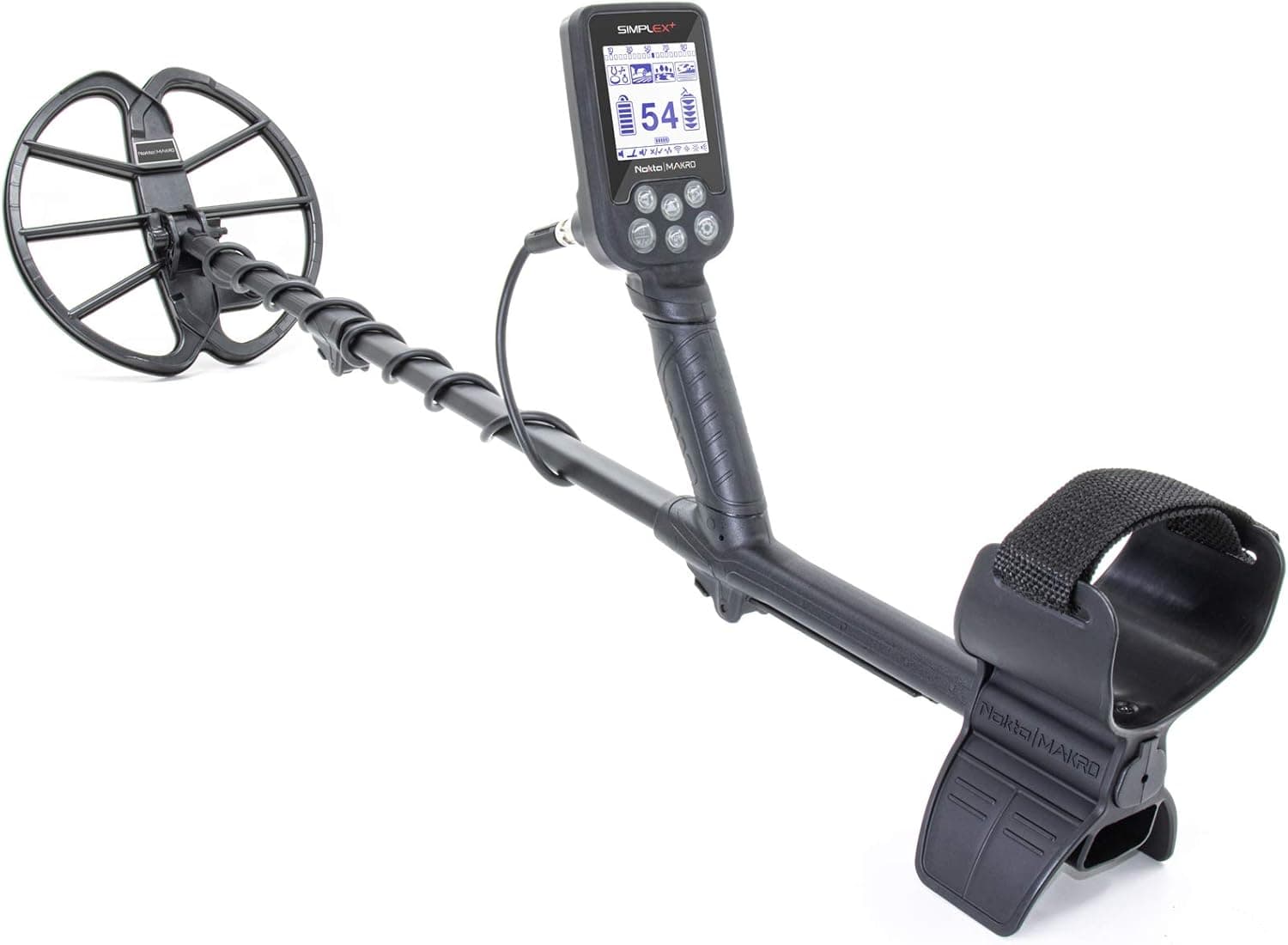
As an Amazon Associate we earn from qualifying purchases.
I Recommend This If...
- You are a beginner on a strict budget (under £200) who wants the best possible start in the hobby with a real chance of finding gold.
- You are looking for a simple, "turn-on-and-go" metal detector that is also waterproof for use in streams or at the beach.
- You are an experienced detectorist who needs an affordable, lightweight, and capable backup machine.
- You want to experience the thrill of finding gold without a significant financial investment, proving that it can be done on a budget.
Best Budget Metal Detector for Gold: Nokta Makro Simplex Lite
If you're on a strict budget and want the best possible start in gold detecting for under £200, my top recommendation is the Nokta Makro Simplex Lite.
Honestly, when I first tried the Simplex, I was skeptical. How could a metal detector at this price point be any good for something as demanding as gold?
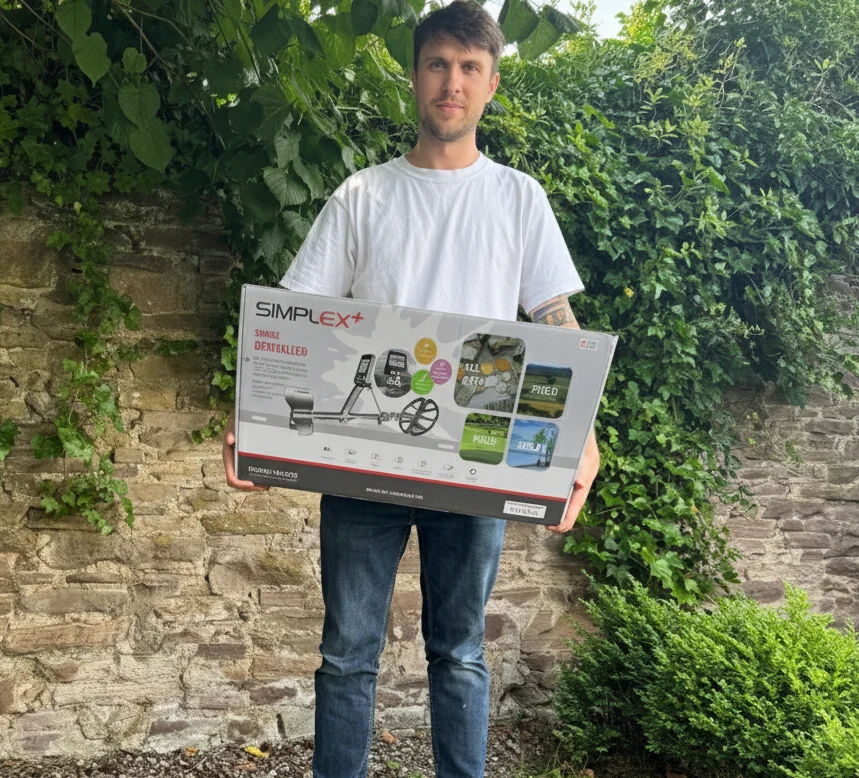
But I was genuinely surprised. The key is its 15 kHz operating frequency. It’s just that little bit higher than most entry-level metal detectors, which gives it a fighting chance on small gold.
I took it to an old spot and, while digging the usual foil signals, I got a soft, repeatable little chirp. It turned out to be a tiny gold flake, the kind of target a lower-frequency metal detector would have likely dismissed as ground noise.
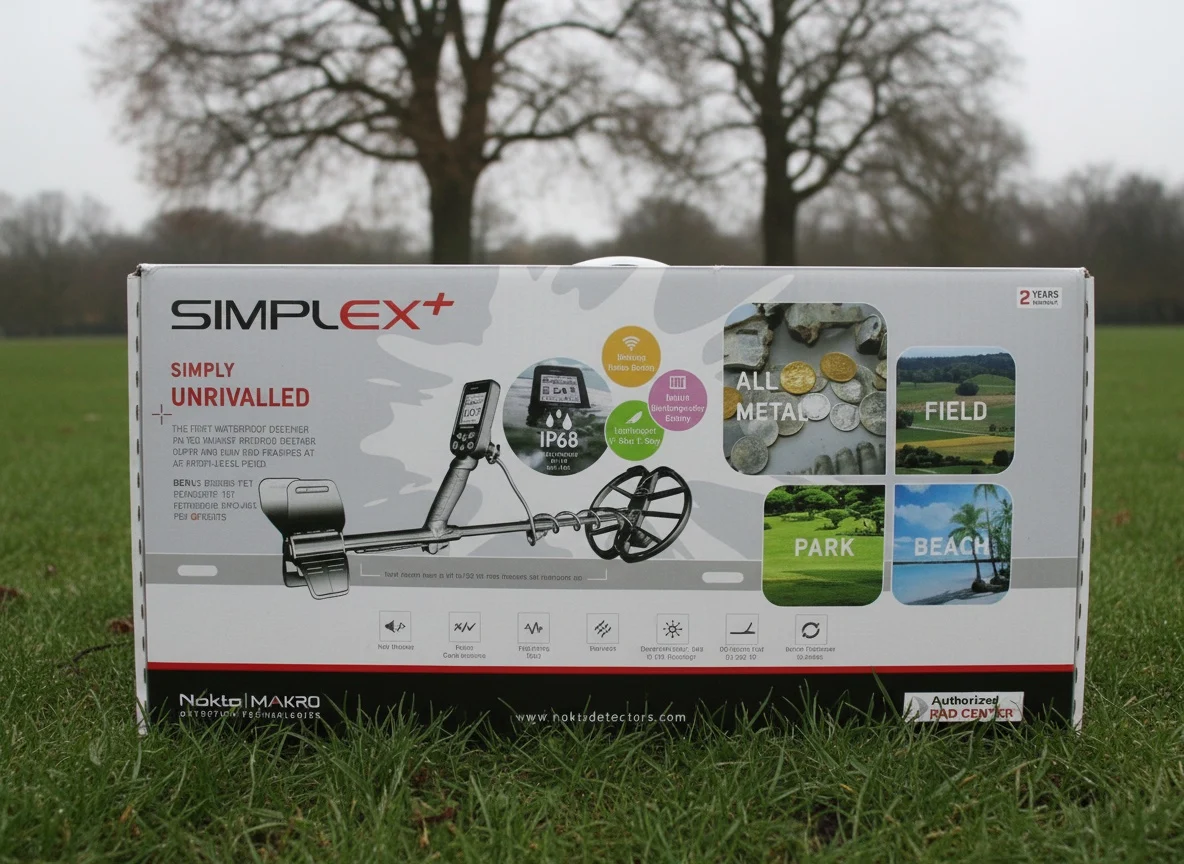
You have to be realistic; this isn't going to compete with a high-end, dedicated gold metal detector. You will dig more junk, and you have to listen very carefully for those faint whispers.
The build quality is surprisingly good for the price, though the shaft clamps can feel a bit flimsy compared to premium models. Still, it's held up well for me on numerous trips. The feeling of finding gold with a sub-£200 detector is fantastic. It proves you don't need to spend a fortune to get in the game.

For its price, the fact that it's one of the great waterproof metal detectors and so easy to just pick up and use makes it the most practical and effective starting point I can recommend. It punches well above its weight.
Garrett AT Gold
Best Mid-Range Metal Detector for Gold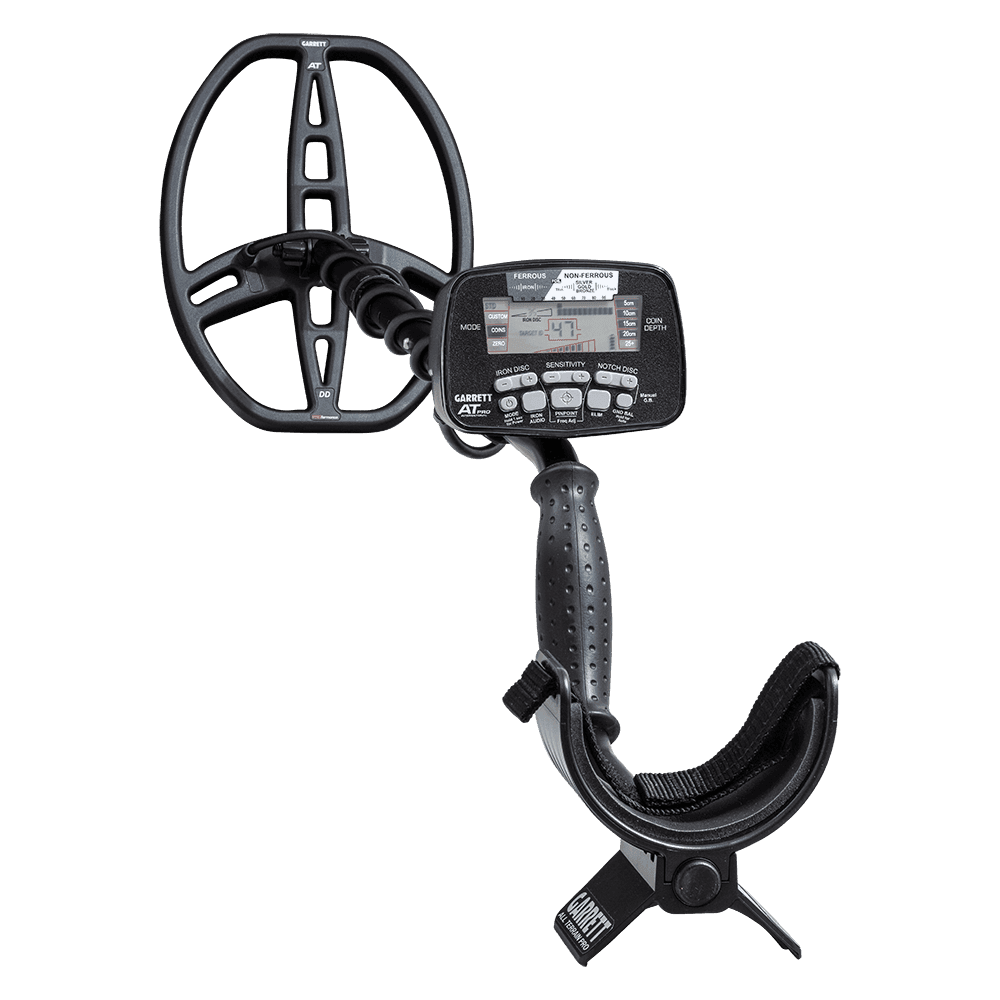
As an Amazon Associate we earn from qualifying purchases.
I Recommend This If...
- You are a dedicated gold prospector who values rugged durability and a classic, no-nonsense design in a metal detector.
- You are a detectorist who enjoys a more "raw" audio experience and wants to hear every signal from the ground in All-Metal mode.
- You frequently hunt in and around freshwater rivers and streams and need a tough, waterproof machine built for those conditions.
- You prefer the simplicity of a single-frequency machine that is specifically optimised for the challenges of gold hunting.
Best Mid-Range Metal Detector for Gold: Garrett AT Gold
For those who are ready to step up their gold metal detecting game, the Garrett AT Gold is a fantastic mid-range option. This metal detector feels like a classic. It's built like a tank, and there's a certain satisfaction in its rugged, no-nonsense design.
I've slipped on wet rocks and banged this detector around more times than I can count, and it just keeps on working. It runs at a single frequency of 18 kHz, which is a sweet spot for gold.

It might not have the sophisticated multi-frequency processing of the Equinox, so it can get a bit more chattery in highly mineralised ground, but in the right conditions, it's deadly.
The feature I've come to rely on is the "All-Metal" mode with its continuous audio. You learn to listen to the subtle changes in the threshold hum, and it gives you an incredible feel for the ground you're covering. The Iron Audio is also brilliant.
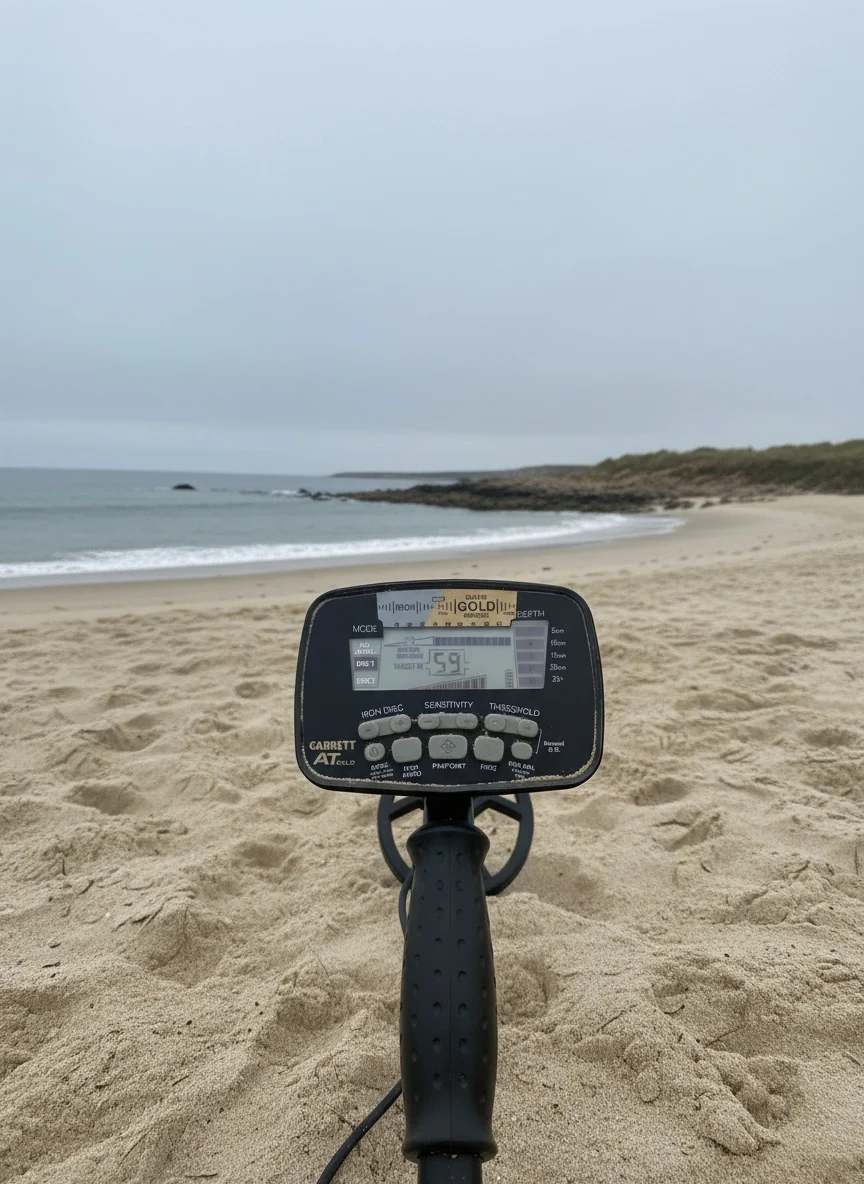
Being able to hear the low grunt of iron even when it's discriminated out means I don't get fooled by bottle caps trying to sound like a gold coin. It's a different approach to the Equinox's Iron Bias, but just as effective once you get your ear in.
It feels like a more raw, direct connection to what's under the coil, and for many detectorists, that's a feeling you can't beat. The only downside is it runs on AA batteries, so I always carry a spare set, but they last a good while.
XP Deus II
Best High-End Metal Detector for Gold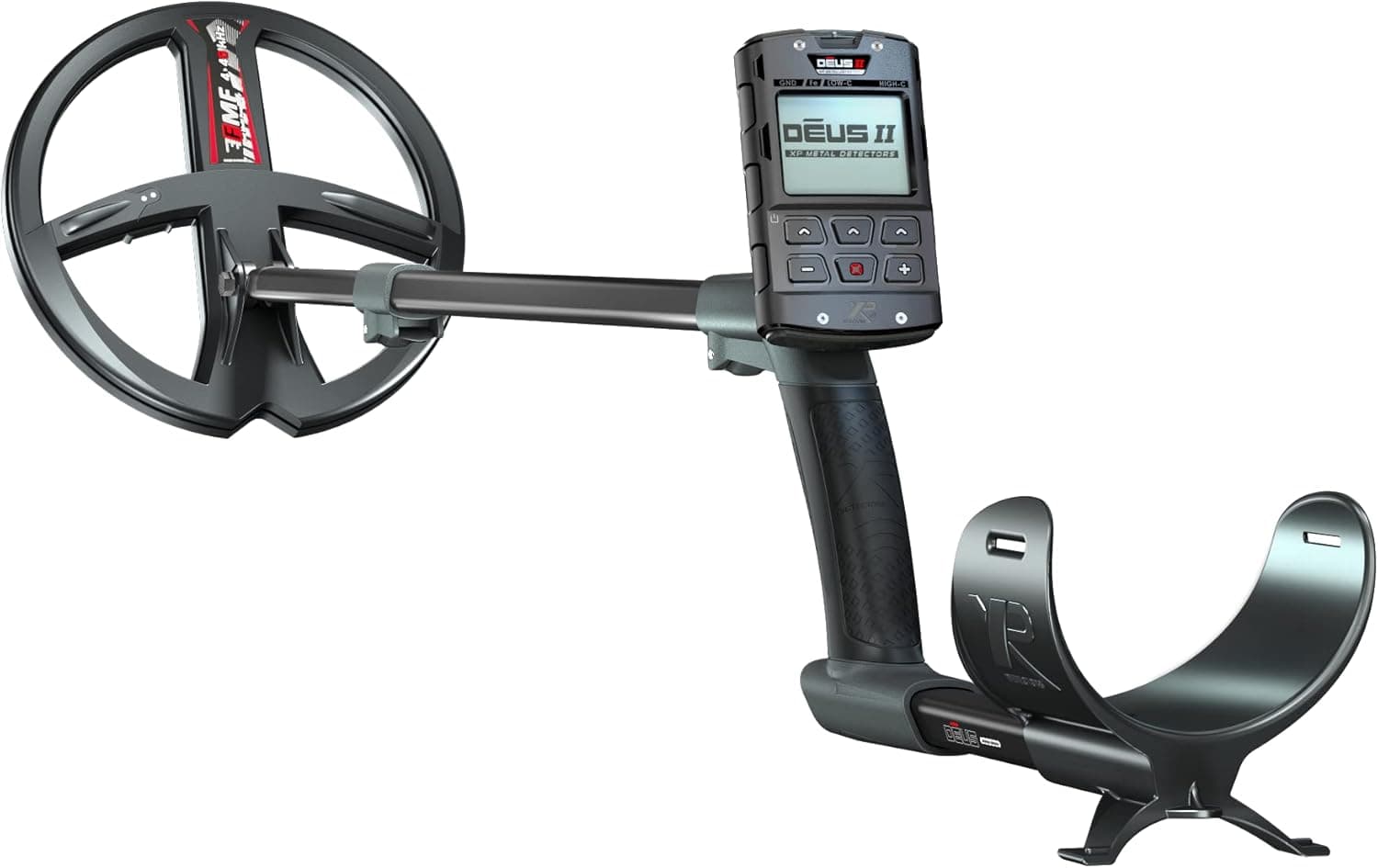
As an Amazon Associate we earn from qualifying purchases.
I Recommend This If...
- You are a serious, professional-level detectorist who demands the absolute best in performance, speed, and target separation.
- You often hunt in extremely challenging, iron-infested sites and need a metal detector that can surgically pick out valuable targets from amongst the junk.
- You are a detectorist who prioritises a lightweight, completely wireless, and ergonomic design for all-day comfort in the field.
- You enjoy mastering a complex piece of equipment and are willing to learn its nuanced audio language to gain a significant advantage.
Best High-End Metal Detector for Gold: XP Deus II
If you're a serious gold prospector, the XP Deus II is in a league of its own. Using this metal detector for the first time feels like stepping into the future. The complete lack of wires is liberating, and it's so light you almost forget you're carrying it.

But the real magic is its speed. I was at a Roman site that was notoriously difficult because of the sheer density of iron nails. With other hobby metal detectors, it's a slow, frustrating process.
The Deus II, with its Fast Multi Frequency (FMF) technology, was able to pick out a tiny, thin silver coin from between two nails. The audio response is so fast and precise, you can clearly hear the two distinct targets.
The audio on the Deus II is a language in itself. It’s far more nuanced than other detectors. You can customise the tones to such a degree that you can almost tell the shape and size of a target before you dig. It takes time to learn, and I'll admit I was a bit overwhelmed at first, but it's incredibly powerful.

While the Equinox 800 is a superb all-rounder, the Deus II feels like a precision instrument. The battery life is excellent, though you do have to remember to charge three separate components (coil, remote, and headphones). It's a significant investment, no doubt about it, but when you're in a challenging environment and need every possible advantage, the performance of the Deus II makes it worth every penny.

What to Look For When Picking a Gold Metal Detector
When you're choosing a metal detector for gold, there are a few key features that you need to pay close attention to. These are the things that will make the biggest difference in your success rate.
Operating Frequency
The operating frequency of a metal detector is one of the most important factors to consider when you're hunting for gold. Gold is a low-conductivity metal, which means that it's best detected at higher frequencies. A metal detector with a high frequency (generally above 18 kHz) will be much more sensitive to small gold nuggets and flakes. However, a lower frequency will give you better depth on larger targets. That's why multi-frequency metal detectors, like the Equinox 800 and the Deus II, are so effective for gold detecting.
Ground Balance
Ground balance is another crucial feature for gold detecting. Gold is often found in highly mineralized soil, which can cause false signals and make it difficult to hear the faint signals from small gold targets. A good metal detector ground balance system will allow you to tune out the mineralization and hear the good targets more clearly. Look for a metal detector with both automatic and manual ground balance options, as this will give you the most flexibility in different soil conditions.
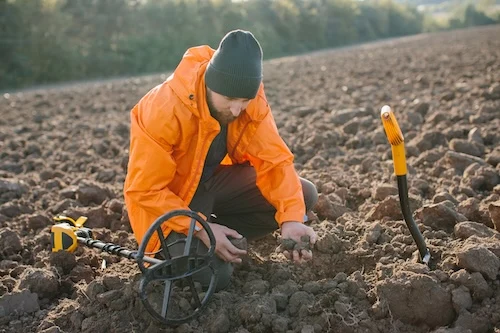
Discrimination
Discrimination is the ability of a metal detector to distinguish between different types of metal. When you're hunting for gold, you'll want a metal detector with good discrimination so that you can filter out iron and other junk targets. However, you also need to be careful not to discriminate out small gold, which can sometimes have a similar signal to foil or other trash. That's why I like metal detectors with an Iron Audio feature, as it allows me to hear the iron without digging it up.
Search Coil
The metal detector search coil is the part of the detector that you sweep over the ground. The size and shape of the search coil can have a big impact on your success. A smaller coil will be more sensitive to small targets and will be easier to use in tight spaces, while a larger coil will give you better depth and ground coverage. For gold detecting, I generally prefer a smaller, elliptical DD (Double-D) coil, as it provides a good balance of sensitivity and depth.
Budget Considerations for Gold Metal Detecting
Gold detecting can be an expensive hobby, but it doesn't have to be. There are good metal detectors available at a variety of price points. If you're on a tight budget, a metal detector like the Nokta Makro Simplex Lite is a great place to start. As you become more experienced and dedicated to the hobby, you can always upgrade to a more advanced metal detector. Remember that the most expensive detector isn't always the best one for you. The most important thing is to choose a metal detector that you're comfortable with and that you'll enjoy using.
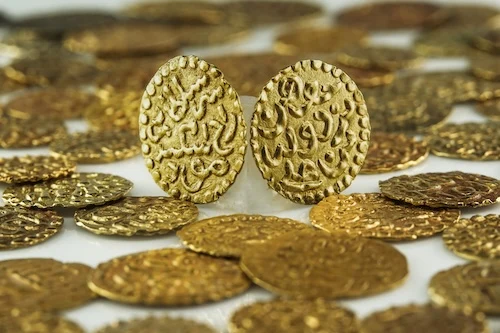
My Top Tips for Gold Metal Detecting
Over the years, I've learned a few things that have helped me to be more successful in my gold prospecting adventures. Here are a few of my top metal detecting tips:
Research, Research, Research
The most important part of gold detecting happens before you even turn on your metal detector. Do your research and learn about the areas where gold has been found in the past. Look for old mining districts, streams that drain from gold-bearing areas, and areas with the right geology. The more you know about where to look, the better your chances of success will be.
Learn to Read the Ground
Pay attention to the signs that nature gives you. Look for areas where heavy materials, like gold, would naturally accumulate. This could be on the inside bends of streams, behind large boulders, or in cracks and crevices in the bedrock. Learning to read the ground is a skill that takes time to develop, but it's one of the most valuable skills a gold prospector can have.
Be Patient and Persistent
Gold detecting is not a get-rich-quick scheme. It takes time, patience, and persistence to be successful. There will be days when you don't find anything, but don't get discouraged. Keep learning, keep practicing, and keep exploring new areas. The more time you spend in the field, the more you'll learn and the more successful you'll be.
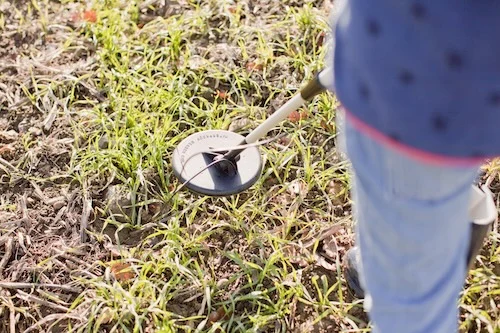
Join a Club
Joining a local metal detector club is a great way to learn from more experienced detectorists and to get access to new permissions. It's also a great way to make new friends who share your passion for the hobby.
Quick Summary
| Rank | Detector | Amazon Link |
|---|---|---|
| #1 | Minelab Equinox 800 Best Overall Metal Detector for Gold | View On Amazon |
| #2 | Nokta Makro Simplex Lite Best Budget Metal Detector for Gold | View On Amazon |
| #3 | Garrett AT Gold Best Mid-Range Metal Detector for Gold | View On Amazon |
| #4 | XP Deus II Best High-End Metal Detector for Gold | View On Amazon |
As an Amazon Associate we earn from qualifying purchases.
Conclusion
Finding gold with a metal detector is an incredibly rewarding experience. There's nothing quite like the feeling of pulling a piece of natural gold out of the ground.
With the right equipment, the right knowledge, and a little bit of luck, you too can experience the thrill of the hunt. I hope this guide has been helpful in your search for the Best Metal Detector For Gold, and I wish you the best of luck in your gold prospecting adventures. Happy hunting!
Author Profile

Piotr Lesniewski
"Digging up the past, one signal at a time."
Polish-born, Scotland-based, and obsessed with the beep. My passion began decades ago, exploring fields with my Dziadek (grandfather). Now, with over 10 years of digging under my belt, I'm here to share everything I've learned—unfiltered and unbiased—to help you unearth your own piece of history. No sales pitches, just real field experience.